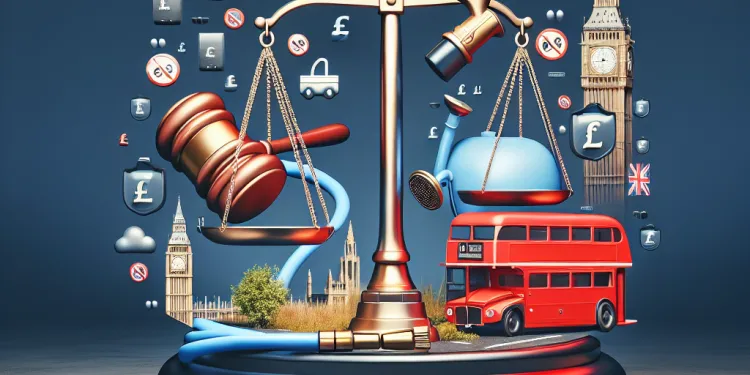
Find Help
More Items From Ergsy search
-

What is the penalty for violating a hosepipe ban from Thames Water?
Relevance: 100%
-
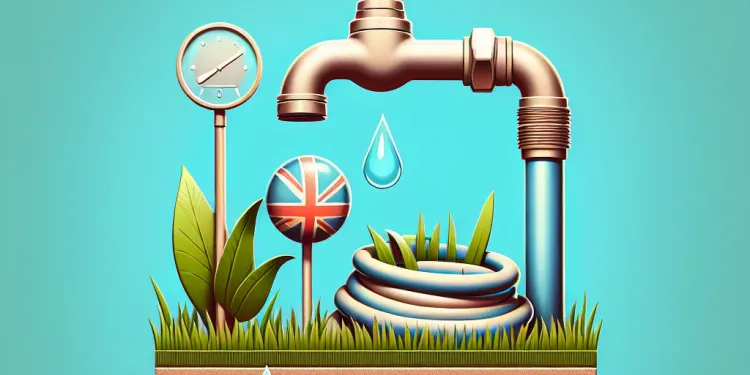
What is a hosepipe ban?
Relevance: 74%
-

Is a hosepipe ban legally enforceable?
Relevance: 71%
-
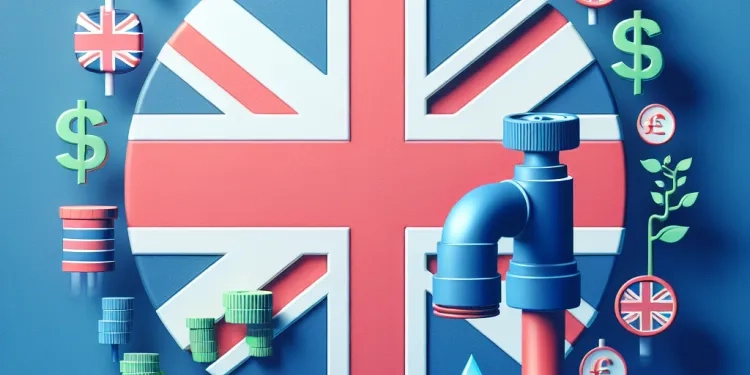
Is a hosepipe ban legally enforceable?
Relevance: 70%
-

Can water companies enter my property to enforce a hosepipe ban?
Relevance: 69%
-
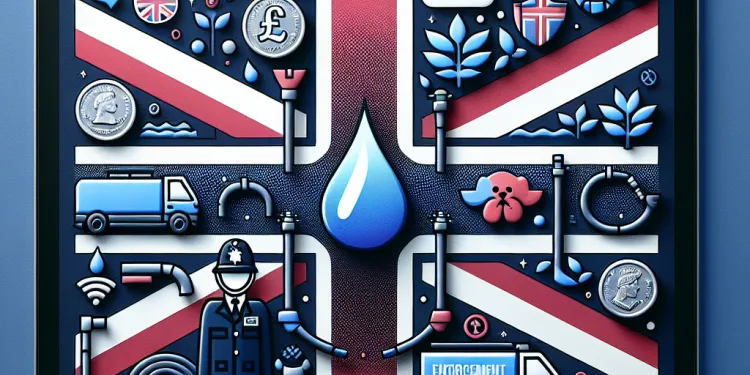
Who enforces hosepipe bans?
Relevance: 66%
-
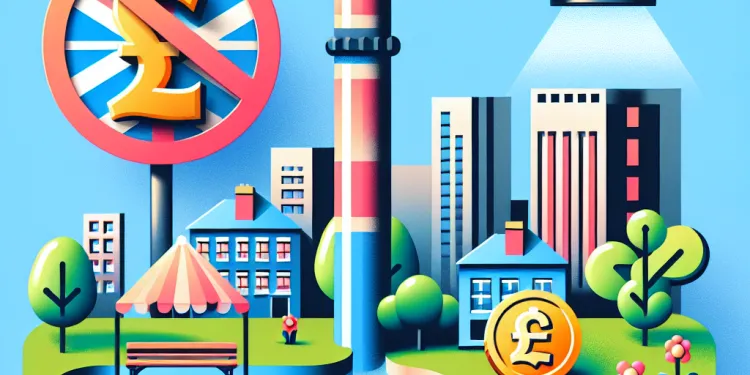
Do hosepipe bans apply to public parks and gardens?
Relevance: 65%
-
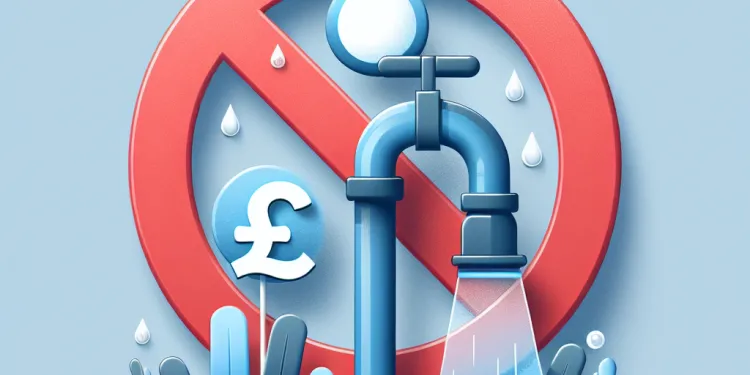
What happens if a hosepipe ban is ignored?
Relevance: 65%
-
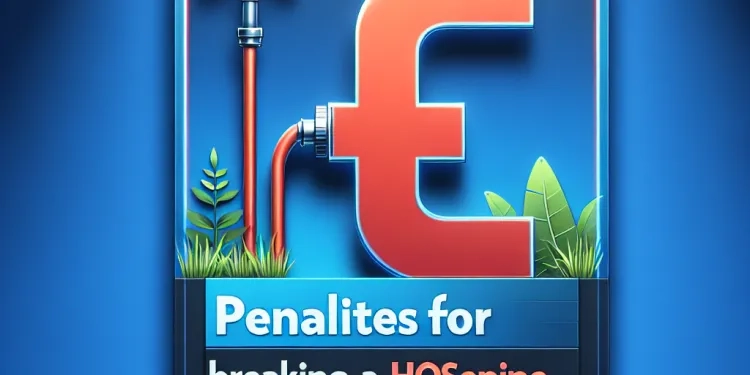
What are the penalties for breaking a hosepipe ban?
Relevance: 64%
-
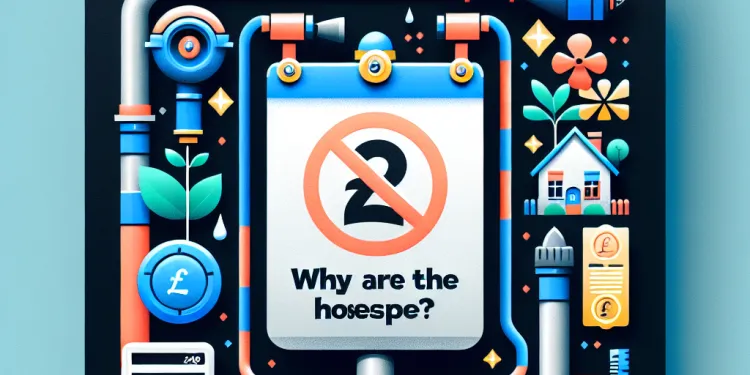
Why are hosepipe bans imposed?
Relevance: 62%
-

Are there any exceptions to a hosepipe ban?
Relevance: 62%
-
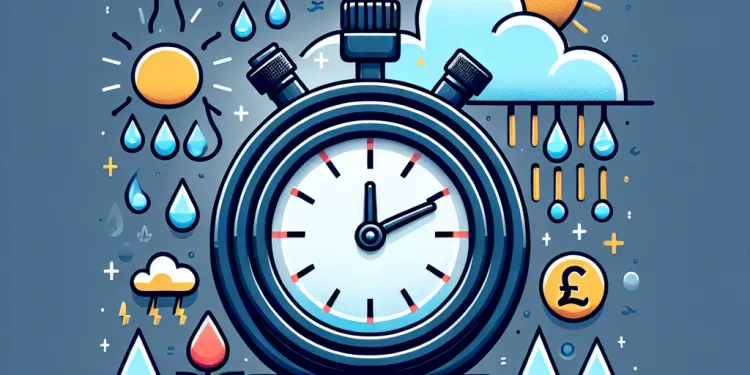
How long do hosepipe bans last?
Relevance: 61%
-
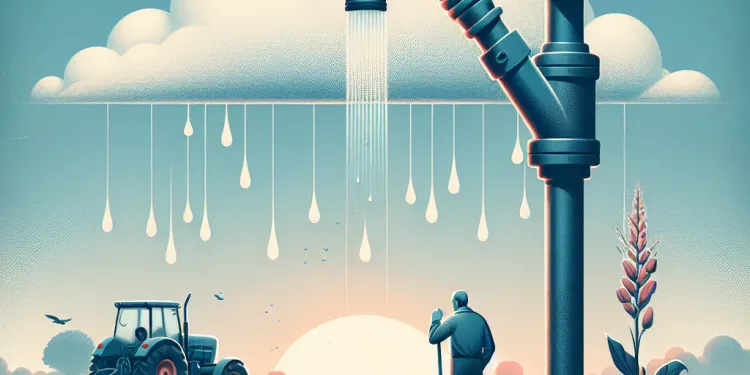
How do hosepipe bans affect farmers?
Relevance: 61%
-
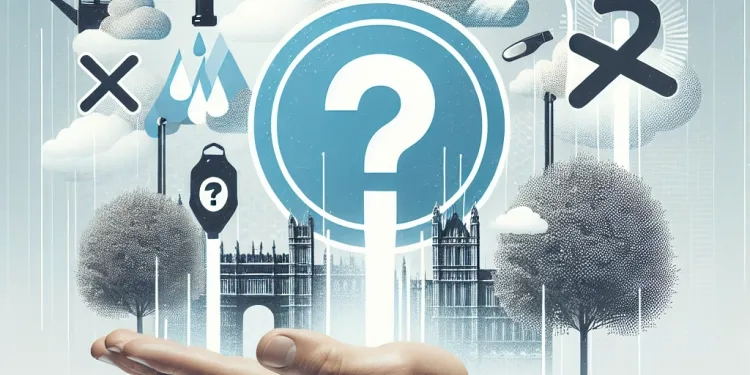
Is using a pressure washer allowed during a hosepipe ban?
Relevance: 60%
-
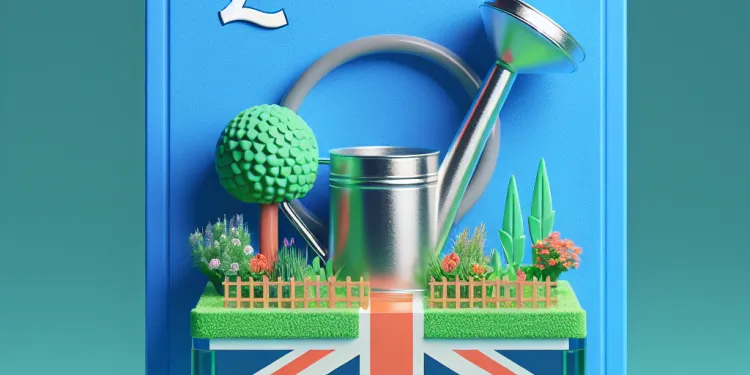
Can I use a watering can during a hosepipe ban?
Relevance: 58%
-

How can I check if there is a hosepipe ban in my area?
Relevance: 57%
-
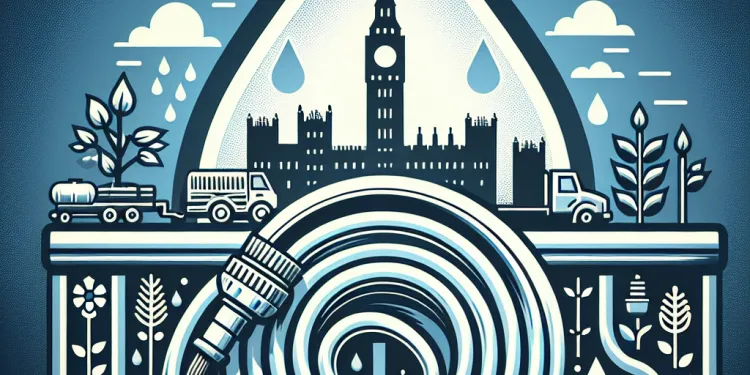
How are hosepipe ban restrictions communicated to the public?
Relevance: 56%
-

Does Thames Water enforce a hosepipe ban more than other water authorities?
Relevance: 55%
-
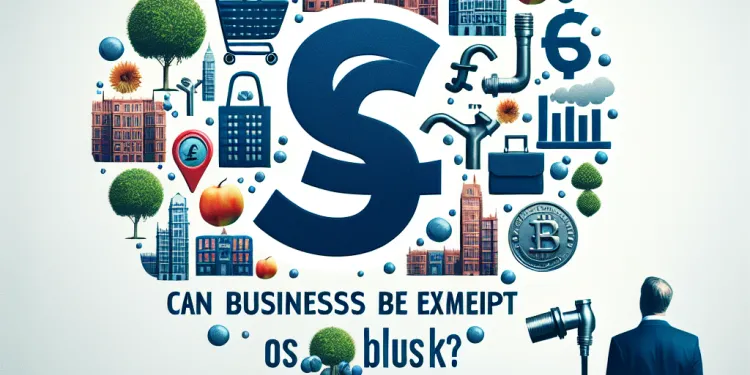
Can businesses be exempt from hosepipe bans?
Relevance: 54%
-

Under what conditions does Thames Water typically impose a hosepipe ban?
Relevance: 53%
-
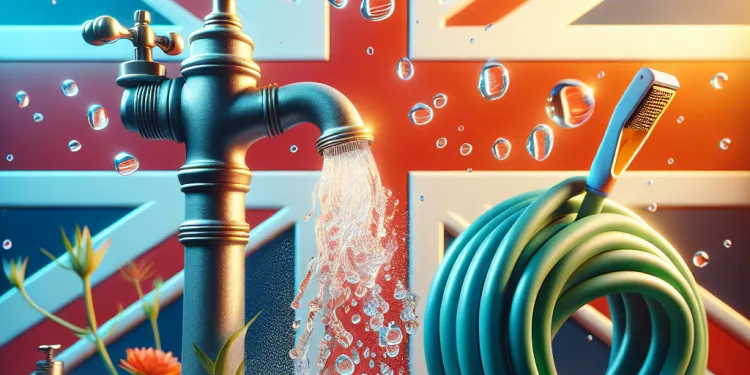
Does Thames Water notify customers before a hosepipe ban is enforced?
Relevance: 52%
-

Does Thames Water impose hosepipe bans more frequently than other water authorities?
Relevance: 50%
-

What penalties are imposed on retailers who violate the age restrictions?
Relevance: 48%
-

Can I report a neighbor for using a hosepipe during a ban?
Relevance: 47%
-

Can hosepipes be used for irrigation during a ban?
Relevance: 46%
-
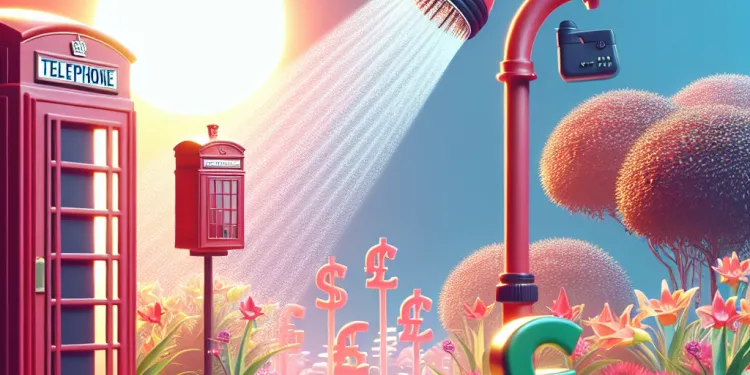
Do hosepipe bans apply to all regions in a country?
Relevance: 38%
-

Is there a maximum number of penalty points one can receive?
Relevance: 37%
-
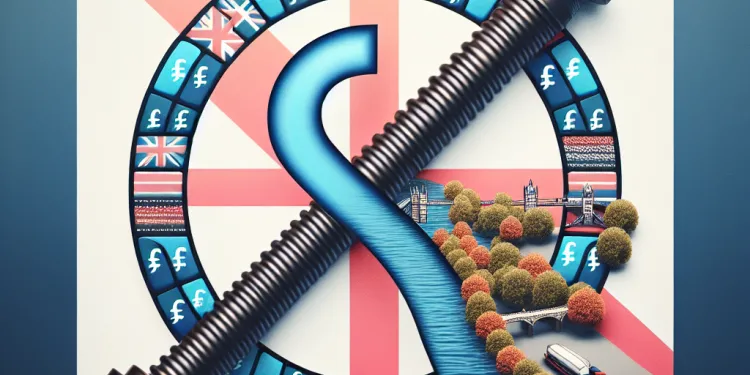
How often does Thames Water enforce hosepipe bans?
Relevance: 36%
-
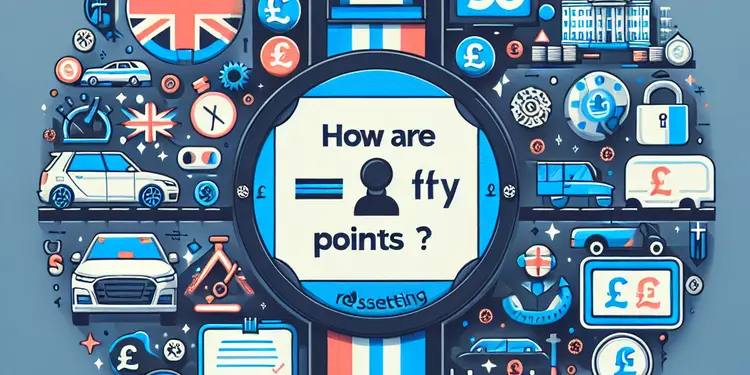
How are penalty points reset?
Relevance: 36%
-

Why was the social media ban for children implemented in Australia?
Relevance: 33%
-

What is the social media ban for children in Australia?
Relevance: 32%
-
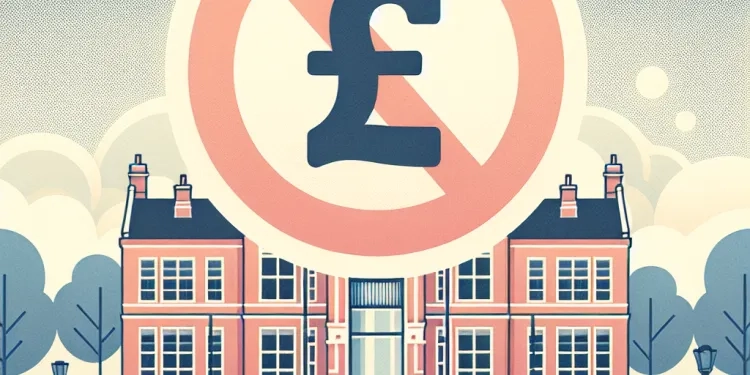
Calls to Ban Vapes Near School Grounds Gain Momentum
Relevance: 30%
-
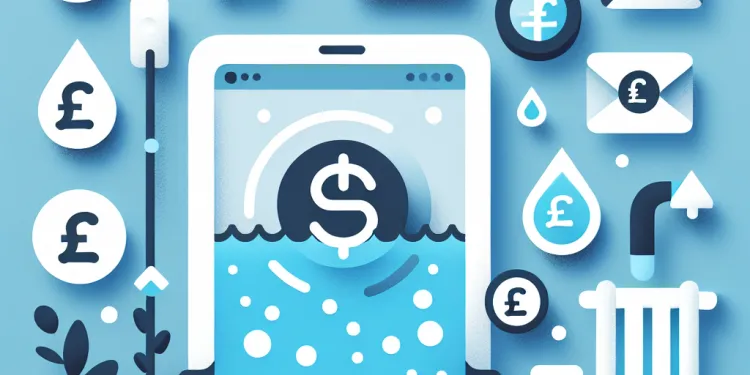
Are there penalties for water companies besides issuing refunds?
Relevance: 30%
-

Have any legal challenges been made against the social media ban?
Relevance: 30%
-
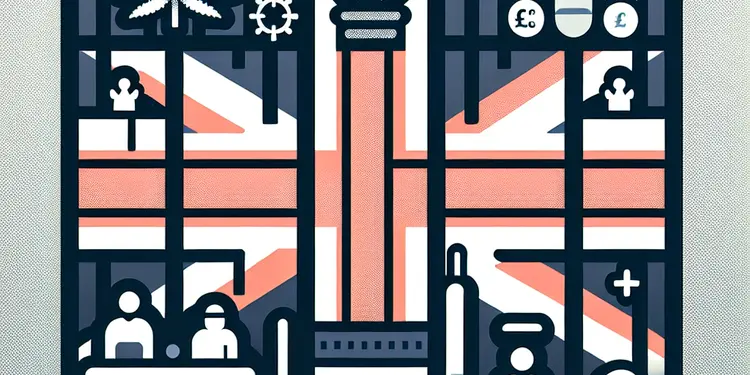
What penalties are common for drug offences?
Relevance: 30%
-
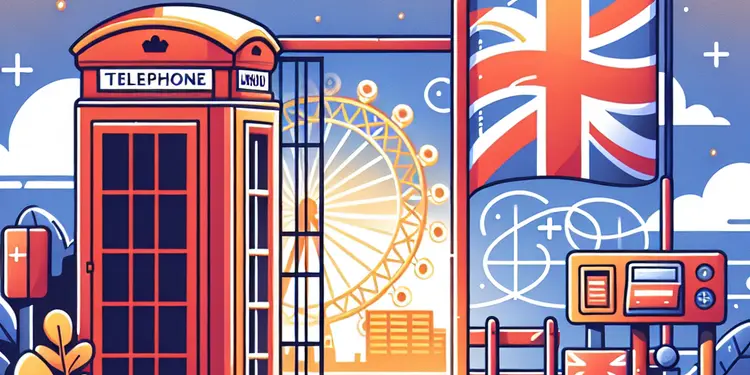
What happens when I reach the penalty point threshold?
Relevance: 29%
-

What future changes are anticipated for the social media ban?
Relevance: 29%
-
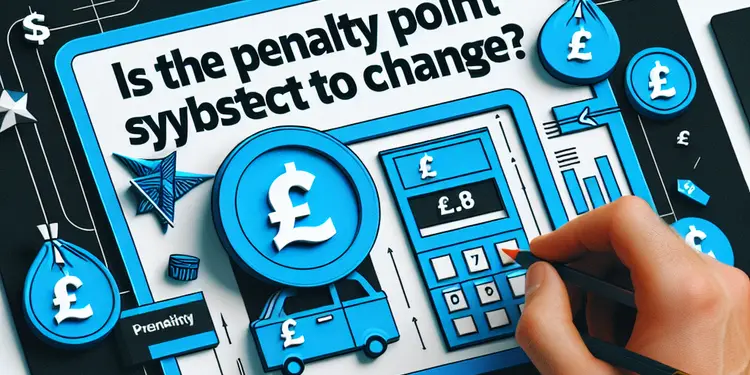
Is the penalty point system subject to change?
Relevance: 28%
-
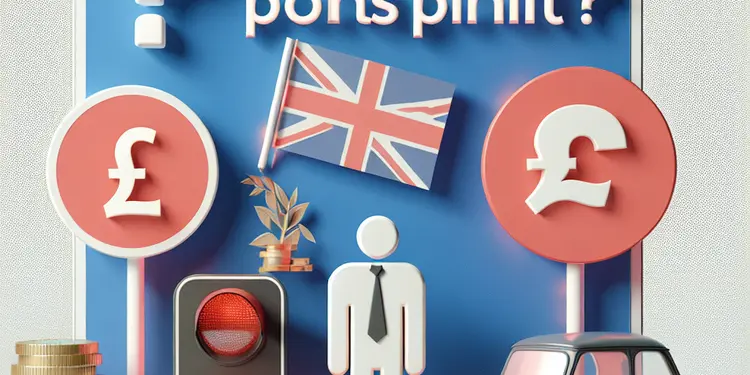
Can penalty points be appealed?
Relevance: 28%
-

How soon could a social media ban for under 16s be implemented in the UK?
Relevance: 28%
Understanding Hosepipe Bans
During periods of drought or serious water shortages, Thames Water, like other water companies in the UK, may impose a temporary use ban, commonly known as a hosepipe ban. The intention of such restrictions is to conserve water and ensure adequate supply for essential uses. Under these rules, domestic customers are prohibited from using hosepipes for certain activities, including watering gardens, washing cars, and filling paddling pools.
Legal Framework for Hosepipe Bans
Hosepipe bans in the UK are governed by the Water Industry Act 1991 and subsequent amendments. These regulations empower water companies to restrict specific uses of water during critical periods. The rules are designed to maintain water supply and protect the environment by reducing non-essential consumption.
Enforcement of Hosepipe Bans
Thames Water enforces hosepipe bans through both awareness campaigns and monitoring. Customers are informed of the restrictions via direct communication, social media, and news outlets. Enforcement also involves monitoring usage trends and encouraging communities to report violations. The emphasis is usually on educating the public about responsible water use.
Penalties for Violating a Hosepipe Ban
If a customer is found to be violating a hosepipe ban, Thames Water has the authority to impose penalties. The typical penalty for breaking the ban is a fine. Violators can be fined up to £1,000 under the terms set out in the Water Industry Act. This fine is intended to deter misuse and encourage compliance with the regulations.
Procedure for Issuing Penalties
The process of issuing penalties usually involves a warning for a first offense. Thames Water may give the customer an opportunity to rectify their actions before proceeding to formal penalties. If a customer continues to violate the terms of the ban after receiving a warning, legal proceedings might be initiated, ultimately leading to a fine.
Conclusion
Penalties for violating a hosepipe ban, such as those imposed by Thames Water, are set to ensure essential water conservation during shortages. While fines up to £1,000 can be imposed for non-compliance, the primary goal is to encourage residents to adopt sustainable water practices. Understanding and adhering to these regulations benefits both the community and the environment by ensuring a reliable water supply during critical periods.
Understanding Hosepipe Bans
Sometimes, there is not enough water because it hasn't rained much. When this happens, companies like Thames Water might say we have to save water. This is called a hosepipe ban. A hosepipe ban means you cannot use a hose to do things like: water the garden, wash your car, or fill up a small pool in your garden. The goal is to save water so everyone has enough for what they really need.
Rules for Hosepipe Bans
In the UK, there are laws that let water companies, like Thames Water, stop people from using too much water. These laws are there to make sure we have enough water and to keep the environment safe. This means we should use less water for things that are not very important.
How Hosepipe Bans are Enforced
Thames Water tells people about the hosepipe ban through letters, social media, or the news. They also keep an eye on how people are using water. They ask the community to help by reporting people who don’t follow the rules. The main goal is to help people understand why saving water is important.
Penalties for Breaking a Hosepipe Ban
If you use a hosepipe when you’re not supposed to, Thames Water can give you a fine. A fine is money you have to pay as a punishment. If you break the rules, they can make you pay up to £1,000. This is to make people think twice and use water wisely.
How Penalties are Given
If you break the rules for the first time, you usually get a warning. This means Thames Water will tell you to stop using your hosepipe. If you keep breaking the rules, you might have to go to court and then pay a fine. Thames Water wants you to have a chance to do the right thing before getting a fine.
Conclusion
Hosepipe bans, like those by Thames Water, help save water when there is not enough. Fines can be given to those who don’t follow the rules. The fines can be up to £1,000. But the most important thing is to get people to save water. By following these rules, we make sure everyone has enough water and we protect the environment. Be smart about using water during these times!
Frequently Asked Questions
What is the penalty for violating a hosepipe ban from Thames Water?
The penalty for violating a hosepipe ban from Thames Water can be a fine of up to £1,000.
How is the hosepipe ban enforced?
Thames Water enforces the hosepipe ban through reports from the public and potential spot checks.
Can I receive a warning before getting fined for breaking the hosepipe ban?
Yes, in some cases, a warning may be issued before a fine is imposed for a first-time violation.
Who is responsible for issuing fines during a hosepipe ban?
Fines during a hosepipe ban are typically issued by Thames Water or the relevant local authority.
What constitutes a violation of the hosepipe ban?
Using a hosepipe for activities such as watering the garden, washing vehicles, or filling pools can constitute a violation.
Can businesses be fined for violating the hosepipe ban?
Yes, businesses can also be fined for violating the hosepipe ban if they do not adhere to the restrictions.
Are there any exemptions to the hosepipe ban?
Yes, certain exemptions exist, such as using a hosepipe for health and safety reasons or for business operations under specific conditions.
How can I report someone violating the hosepipe ban?
You can report violations to Thames Water through their website or customer service line.
Is there an appeal process for fines received for breaking the hosepipe ban?
Yes, there is usually an appeal process if you believe the fine was issued in error.
How will I know if a hosepipe ban is in place?
Thames Water will notify customers through their website, media, and direct communication when a hosepipe ban is in place.
How long does a hosepipe ban typically last?
The duration of a hosepipe ban varies depending on weather conditions and water levels, and it lasts until further notice.
Can I use a watering can during a hosepipe ban?
Yes, a watering can is usually allowed for limited outdoor watering during a hosepipe ban.
Does the hosepipe ban apply to all areas serviced by Thames Water?
A hosepipe ban may apply to specific areas depending on local conditions; Thames Water will provide details on affected regions.
Are pressure washers allowed during a hosepipe ban?
Pressure washers are typically prohibited during a hosepipe ban, similar to hoses.
Why are hosepipe bans implemented?
Hosepipe bans are implemented to conserve water during periods of drought or low reservoir levels.
Can I use greywater during a hosepipe ban?
Yes, using collected rainwater or greywater for outdoor use is often encouraged during a hosepipe ban.
Are there any penalties for repeat violators of the hosepipe ban?
Repeat violators may face higher fines or legal consequences.
What should I do if I receive a fine for a hosepipe ban violation?
If you receive a fine, review the details, consider if the fine is warranted, and appeal if you disagree with the penalty.
Can I water my plants with a drip irrigation system during a hosepipe ban?
Drip irrigation systems may be allowed depending on specific regulations, as they use water more efficiently.
Where can I find more information on the current hosepipe ban?
More information on the current hosepipe ban can be found on Thames Water's website and through their customer service.
What happens if you break the hosepipe rules from Thames Water?
If you use a hosepipe when you are not allowed, you might have to pay a big fine. Thames Water can make you pay up to £1,000.
How do people make sure the hosepipe ban is followed?
Thames Water stops people from using hoses by asking the public to report anyone doing it. They might also check from time to time to see if people are following the rules.
Will I get a warning before being fined for using a hosepipe when it's banned?
If you use a hosepipe when you are not allowed, you might get a fine. Sometimes, people will warn you first. But it's not always the same everywhere. You should check the rules in your area.
To help remember not to use a hosepipe, you could:
- Set a reminder on your phone.
- Tell a friend or family member to remind you.
- Put a note on your garden tap.
Sometimes, before you have to pay money because you broke a rule for the first time, you might just get a warning instead.
Who gives out fines when you can't use a hosepipe?
If you use a hosepipe when you are not supposed to, you might have to pay a fine. The fine usually comes from Thames Water or the local council.
What breaks the hosepipe rules?
Using a hosepipe to water the garden, wash cars, or fill pools can break the rules.
Can businesses get in trouble for breaking the hosepipe ban?
A hosepipe ban means you cannot use a hosepipe to water plants or wash cars. If businesses break this rule, they can get in trouble.
They might have to pay money as a punishment. This is called a fine.
To help understand the rules, you can:
- Ask someone to explain them to you.
- Use pictures to remember them.
- Set reminders to follow the rules.
Yes, businesses can get in trouble if they break the hosepipe ban rules and might have to pay money as a fine.
Can anyone still use a hosepipe even with the ban?
Yes, there are times when you can still use a hosepipe. For example, if you need to use it for health and safety or for work. But you have to follow some special rules.
How do I tell someone about breaking the hosepipe rules?
You can tell Thames Water if someone breaks the rules by going to their website or calling their customer service number.
Can I ask for a review if I get a fine for using my hosepipe?
Yes, you can ask someone to look at your fine again if you think it was a mistake.
How do I find out if we can't use a hosepipe?
Thames Water will let people know about a hosepipe ban. They will do this on their website, in the news, and by telling people directly.
How long does a hosepipe ban usually last?
A hosepipe ban means people can't use hosepipes to save water. These bans usually last a few weeks or months.
Here are some tips to help understand more:
- Ask someone: If you don’t know, ask a friend or family member.
- Use pictures: Look at pictures or videos about hosepipe bans.
- Find help online: Use a website that explains things simply.
The hosepipe ban lasts as long as there is not enough water. It ends when things change, like if it rains more or water levels go up.
Can I use a watering can if hoses are not allowed?
Yes, you can use a watering can to water plants outside when you are not allowed to use a hosepipe.
Does the hosepipe ban apply to all areas serviced by Thames Water?
A hosepipe ban means you cannot use a hose for things like washing cars or watering plants.
Question: Does this ban affect everyone who gets water from Thames Water?
Answer: Check if the ban is for your area by:
- Going online to the Thames Water website.
- Calling Thames Water customer service.
Ask a family member or friend if you need help checking.
In some places, you might not be allowed to use a garden hose. This is called a 'hosepipe ban.' It depends on where you live and what's happening with the water. Thames Water will tell you which areas can't use garden hoses.
Can you use a pressure washer when there is a hosepipe ban?
When there is a hosepipe ban, you might wonder if you can use a pressure washer. Let's find out!
A hosepipe ban usually means you must save water. Sometimes, you can still use a pressure washer if you need to, but it's best to check the rules.
Here are some helpful tips:
- Look at your water company's website to see what you can and cannot do.
- If you are not sure, you can call them and ask.
Remember, saving water is important!
You usually cannot use pressure washers when there is a hosepipe ban. This is the same rule as for hoses.
Why do we have hosepipe bans?
Sometimes, there is not enough water for everyone. This can happen in hot, dry weather when it does not rain much.
A hosepipe ban is a rule that stops people from using a hosepipe to water their gardens or fill up paddling pools. This helps to save water.
Here are some ways you can help save water:
- Use a watering can instead of a hose.
- Take shorter showers.
- Turn off the tap when brushing your teeth.
Sometimes, there is not enough water because it hasn't rained much or the places where we keep water are low. When this happens, hosepipe bans are used to save water.
Can I use water from washing at home when there is a hosepipe ban?
Yes, you can use rainwater you collected or water you already used from inside the house for things outside when there is a hosepipe ban.
Do people get in trouble if they keep breaking the hosepipe ban rules?
If you keep breaking the rules, you might have to pay more money or get into legal trouble.
What to Do if You Get a Fine for Using a Hose When It's Not Allowed
Did you get a fine for using a hose when you shouldn't? Here are some steps to help:
- Stay Calm: It's okay. Let's figure this out together.
- Read the Fine: Look carefully at what it says. Check how much money you need to pay and why.
- Ask for Help: If you're confused, ask someone you trust to explain it to you. This could be a friend or family member.
- Contact the Water Company: Call or email them. They can tell you more about the fine and what to do next.
- Pay the Fine: If you need to pay, do it on time to avoid more charges. You can ask someone to help you with this, too.
- Learn the Rules: Make sure you know when you can and can't use your hose. This will help you avoid fines in the future.
Remember, asking questions is good. There are people who can help you if you need it!
If you get a fine, look at the details. Think about if the fine is fair. If you think it is not fair, you can ask for it to be changed.
Can I Use Drip Irrigation When I Can't Use a Hose?
There is a time when you cannot use the hose to water your garden. This is called a hosepipe ban. But you may still want to water your plants.
You can use something called a drip irrigation system. It delivers water slowly to the plants. You need to check the rules where you live. Sometimes you can use drip irrigation during a hosepipe ban. Ask for help when reading the rules.
You can also ask someone in government or your local water company if you are unsure. They can explain what you can and cannot do.
Some helpful tools to understand these rules better are asking a friend to help read, using apps that read text aloud, or drawing pictures of the steps.
Drip irrigation systems might be okay to use if the rules say so. They help save water.
Where can I get more information about the hosepipe ban?
You can look online for news about the hosepipe ban. Try using simple words like "hosepipe ban" when you search.
You can also ask someone for help. Maybe a friend or family member can help you find the right information.
Another way is to check local news on TV or in the paper. They might have stories about the hosepipe ban.
You can find more details about the hosepipe ban on Thames Water's website. You can also ask them through customer service for help.
Useful Links
This website offers general information and is not a substitute for professional advice.
Always seek guidance from qualified professionals.
If you have any medical concerns or need urgent help, contact a healthcare professional or emergency services immediately.
Some of this content was generated with AI assistance. We’ve done our best to keep it accurate, helpful, and human-friendly.
- Ergsy carfully checks the information in the videos we provide here.
- Videos shown by Youtube after a video has completed, have NOT been reviewed by ERGSY.
- To view, click the arrow in centre of video.
- Most of the videos you find here will have subtitles and/or closed captions available.
- You may need to turn these on, and choose your preferred language.
- Go to the video you'd like to watch.
- If closed captions (CC) are available, settings will be visible on the bottom right of the video player.
- To turn on Captions, click settings .
- To turn off Captions, click settings again.
More Items From Ergsy search
-

What is the penalty for violating a hosepipe ban from Thames Water?
Relevance: 100%
-

What is a hosepipe ban?
Relevance: 74%
-

Is a hosepipe ban legally enforceable?
Relevance: 71%
-

Is a hosepipe ban legally enforceable?
Relevance: 70%
-

Can water companies enter my property to enforce a hosepipe ban?
Relevance: 69%
-

Who enforces hosepipe bans?
Relevance: 66%
-

Do hosepipe bans apply to public parks and gardens?
Relevance: 65%
-

What happens if a hosepipe ban is ignored?
Relevance: 65%
-

What are the penalties for breaking a hosepipe ban?
Relevance: 64%
-

Why are hosepipe bans imposed?
Relevance: 62%
-

Are there any exceptions to a hosepipe ban?
Relevance: 62%
-

How long do hosepipe bans last?
Relevance: 61%
-

How do hosepipe bans affect farmers?
Relevance: 61%
-

Is using a pressure washer allowed during a hosepipe ban?
Relevance: 60%
-

Can I use a watering can during a hosepipe ban?
Relevance: 58%
-

How can I check if there is a hosepipe ban in my area?
Relevance: 57%
-

How are hosepipe ban restrictions communicated to the public?
Relevance: 56%
-

Does Thames Water enforce a hosepipe ban more than other water authorities?
Relevance: 55%
-

Can businesses be exempt from hosepipe bans?
Relevance: 54%
-

Under what conditions does Thames Water typically impose a hosepipe ban?
Relevance: 53%
-

Does Thames Water notify customers before a hosepipe ban is enforced?
Relevance: 52%
-

Does Thames Water impose hosepipe bans more frequently than other water authorities?
Relevance: 50%
-

What penalties are imposed on retailers who violate the age restrictions?
Relevance: 48%
-

Can I report a neighbor for using a hosepipe during a ban?
Relevance: 47%
-

Can hosepipes be used for irrigation during a ban?
Relevance: 46%
-

Do hosepipe bans apply to all regions in a country?
Relevance: 38%
-

Is there a maximum number of penalty points one can receive?
Relevance: 37%
-

How often does Thames Water enforce hosepipe bans?
Relevance: 36%
-

How are penalty points reset?
Relevance: 36%
-

Why was the social media ban for children implemented in Australia?
Relevance: 33%
-

What is the social media ban for children in Australia?
Relevance: 32%
-

Calls to Ban Vapes Near School Grounds Gain Momentum
Relevance: 30%
-

Are there penalties for water companies besides issuing refunds?
Relevance: 30%
-

Have any legal challenges been made against the social media ban?
Relevance: 30%
-

What penalties are common for drug offences?
Relevance: 30%
-

What happens when I reach the penalty point threshold?
Relevance: 29%
-

What future changes are anticipated for the social media ban?
Relevance: 29%
-

Is the penalty point system subject to change?
Relevance: 28%
-

Can penalty points be appealed?
Relevance: 28%
-

How soon could a social media ban for under 16s be implemented in the UK?
Relevance: 28%


